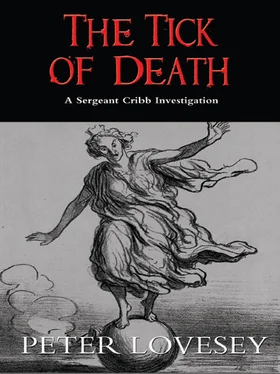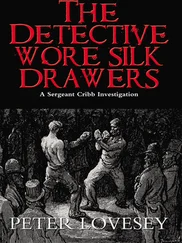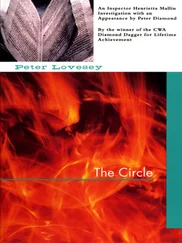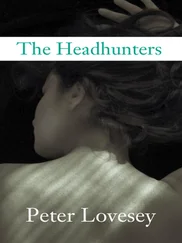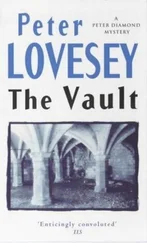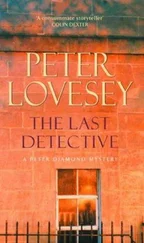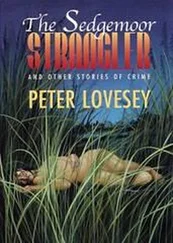Peter Lovesey - The Tick of Death
Здесь есть возможность читать онлайн «Peter Lovesey - The Tick of Death» весь текст электронной книги совершенно бесплатно (целиком полную версию без сокращений). В некоторых случаях можно слушать аудио, скачать через торрент в формате fb2 и присутствует краткое содержание. Жанр: Исторический детектив, на английском языке. Описание произведения, (предисловие) а так же отзывы посетителей доступны на портале библиотеки ЛибКат.
- Название:The Tick of Death
- Автор:
- Жанр:
- Год:неизвестен
- ISBN:нет данных
- Рейтинг книги:3 / 5. Голосов: 1
-
Избранное:Добавить в избранное
- Отзывы:
-
Ваша оценка:
- 60
- 1
- 2
- 3
- 4
- 5
The Tick of Death: краткое содержание, описание и аннотация
Предлагаем к чтению аннотацию, описание, краткое содержание или предисловие (зависит от того, что написал сам автор книги «The Tick of Death»). Если вы не нашли необходимую информацию о книге — напишите в комментариях, мы постараемся отыскать её.
The Tick of Death — читать онлайн бесплатно полную книгу (весь текст) целиком
Ниже представлен текст книги, разбитый по страницам. Система сохранения места последней прочитанной страницы, позволяет с удобством читать онлайн бесплатно книгу «The Tick of Death», без необходимости каждый раз заново искать на чём Вы остановились. Поставьте закладку, и сможете в любой момент перейти на страницу, на которой закончили чтение.
Интервал:
Закладка:
‘Very well. Keep your wits about you, though. This isn’t cricket, you know. There’s no credit given for catching them before they land.’
Cribb formed his mouth into the token of a smile and started watchfully along the margin of the throwing area. He was determined not to take his eyes off the hammer-circle so long as he was within range. The throwers were practising their turns, keeping a firm grip on their hammers and rotating like whirling Dervishes.
He took up a stance on the bicycle track, in line with the second official, who positioned himself rashly in the very centre of the arena. Presently there was a shrill whistle-blast from the first, a vigorous brandishing of a Union Jack, and one of the throwers stepped into the circle, spat into the palm of each hand, swung the hammer several times through an axis above his head, brought it lower, turned his body with it and let go.
It thudded into the turf some thirty feet from Cribb. The second official hurried towards it and marked the spot with an iron pin with a pennant attached. Cribb took hold of the wooden shaft of the hammer and disinterred the metal head by a series of jerks. The movement dislodged his silk hat and sent it careering across the grass. ‘For Heaven’s sake,’ said the second official as he returned it to him, ‘let’s endeavour to preserve a modicum of dignity, old fellow. There’s enough antics going on at the other end, without you and me setting up in opposition.’
In their present situation, it was courting disaster to prolong conversation further, so he picked up the hammer and stumbled to the sideline without a word. There, he started the walk back towards the circle, dragging the implement behind him like a sledge, for exhibitions of strength were no more suitable from officials than antics with hats.
He was met half-way by the thrower, a generously-built fellow, not quite a barge-horse, but impressive enough about the flanks and withers. ‘I’ll need to turn faster than that to bother the Yankees,’ he confided to Cribb in the unconfidential accents of the English upper class. ‘I fancy that this hammer is a trifle short in the shaft. See if you can get hold of Devlin’s and pass it on to me, there’s a good chap. I’ll wait here.’
There was nothing against it in the rules he had thoughtfully consulted that morning, so he nodded and made for the centre of the field, where the second hammer had already embedded itself, some ten feet past the Englishman’s mark. When it was marked, he wrenched it from the turf and hauled it over to the waiting athlete.
‘Stout fellow!’ said the Englishman. He grabbed the handle and made off towards the circle at some speed, taking care not to catch the eye of the American fast approaching Cribb.
‘Where’s m’hammer?’ demanded the new arrival. He was the shorter of the foreign opposition, a mere six feet or so of shaggy Irish-American muscularity. This must be Devlin, Cribb decided. It wouldn’t do to anger him.
Cribb winked theatrically. ‘I think you’ll find there’s more whip on this one. This shaft is made of malacca, you see. The other’s hickory. I passed it to the Englishman.’ He winked again, in case the first had not been noticed.
Devlin frowned, and examined the hammer-handle dubiously. ‘Now why should you do a thing like that?’
Cribb shrugged. ‘Maybe there’s a drop of Erin blood in my veins.’
‘Ah!’ Devlin seemed to understand. He winked at Cribb and walked away, dangling the hammer like a toy.
During this conversation, the third hammer had been launched and had landed several yards short of the previous throws. Cribb retrieved it and towed it to the side of the throwing area. In his keenness to get clear before the whistle blew again, he practically butted his silk hat into the midriff of the third competitor.
Malone did not budge an inch. If Cribb’s forward motion had not been independently halted at the last possible instant, there is no question that the injuries would have been all on his side. ‘I do apologise,’ he said.
Malone put forward a massive hand for his hammer. The sections of his limbs not covered by the black merino of guernsey and drawers supported a growth of hair so abundant that it would not have wanted much imagination to believe him clothed from head to toe in black. When Cribb looked up into the two small eyes that, together with a once-fractured nose, were all that could be seen of Malone’s face behind a mass of glossy curls, he had the curious fancy that they were regarding him from the centre of a heap of blackberries. It was not a fruit he liked.
Malone took the hammer without a word and strode away. Cribb studied his vast, retreating figure. It was baffling that a man of those proportions could not hurl a sixteen pound weight farther than lesser mortals like Devlin and the Englishman. Possibly Malone was equally baffled.
The next throw from the Englishman drifted well off centre, but it was a long one that took him into the lead. ‘It’s a little beauty!’ he told Cribb, when he collected the hammer. ‘Let’s see if Uncle Sam can match that!’
Devlin’s throw, unhappily, was ten feet behind his first effort. Cribb discerned unmistakable aggression in the set of the Irish-American’s shoulders as he came forward for the malacca-handled hammer. ‘Did you see that throw of mine? I think you handed me a bum hammer, Mister. Are you sure about that Irish blood of yours?’
‘As sure as I am that you’ll beat him with your last throw,’ said Cribb, with all the passion he could raise. ‘I think you gave it too much height, if I might proffer an opinion. The shaft is giving you the extra whip. You have my word for that.’
‘D’you really think so?’ said Devlin, prepared to be convinced.
‘I had the very devil of a job pulling it out of the turf,’ said Cribb. ‘There’s power in that malacca, I promise you.’
‘There has to be. I shall need over a hundred feet to win this afternoon.’
At the other end, Malone was in the circle. His efforts with the hammer aped the style of the other competitors without achieving the same fluidity. Instead of swinging the hammerhead through a series of circles in a gradually accelerating movement, he somehow contrived to begin like a fly-wheel at full speed and end like a novice with a yo-yo. On sheer arm-power the hammer swung aloft and dropped like a plummet not twenty yards from the circle. Cribb decided it was prudent to let him collect the implement himself.
The Englishman’s third throw was no longer than his second, so it was open to the Americans to clinch the contest with their final efforts. For once in his life, Cribb gritted his teeth and hoped Britannia would not prevail. There were bigger things at issue than victory in a sporting competition. The winning of Devlin’s confidence was more important for England this afternoon.
The lead weight at the end of the malacca handle flashed in the sun as it was pulled through its preliminary orbits. Three times it passed above Devlin’s head before he allowed his body to contribute to the momentum, turning with the hammer, spinning with singular agility on the balls of his feet. Then at the moment of maximum acceleration, his right leg stiffened at the front edge of the circle and he released the hammer. It described a great arc above the blackness of Lillie Bridge and shuddered down in the centre of the throwing-sector.
From where Cribb stood, the throw looked at least the equal of the Englishman’s. With the greatest difficulty, he resisted the impulse to cheer. He ran to the mark to make quite sure he was not deceived by some trick of perspective. ‘It’s a long one,’ said the second official superfluously. ‘There won’t be much in it between the two of them. Did he put his foot out of the circle, do you suppose?’
Читать дальшеИнтервал:
Закладка:
Похожие книги на «The Tick of Death»
Представляем Вашему вниманию похожие книги на «The Tick of Death» списком для выбора. Мы отобрали схожую по названию и смыслу литературу в надежде предоставить читателям больше вариантов отыскать новые, интересные, ещё непрочитанные произведения.
Обсуждение, отзывы о книге «The Tick of Death» и просто собственные мнения читателей. Оставьте ваши комментарии, напишите, что Вы думаете о произведении, его смысле или главных героях. Укажите что конкретно понравилось, а что нет, и почему Вы так считаете.
